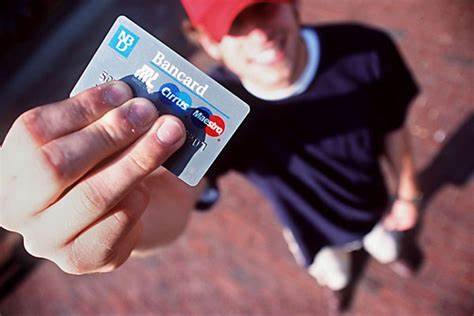If you want to use your credit card in the right way, you don't have to give up your credit card altogether - although if you know that you can easily abuse your credit card, this is not a bad strategy.
Why is good credit important?
The history of your credit card will be compiled into a credit report and scored by credit score. Lenders, employers, landlords, insurance companies, and even utility service providers use your credit report or credit score (or both) to decide whether to approve your application and at what cost. See credit report and scoring overview.
Too many credit card debts will leave a negative mark on your credit report and lower your credit score. If you have a record of payment in arrears, it will also lower your credit score. This may prevent you from getting a loan or an apartment. The landlord may ask you to have a co-signer. Employers must not hire you. The utility service department may require a large margin before opening the service.
It is important to have a good credit history, especially when you are just starting out. Whether you have such a good credit history depends on how you use your credit card during college.
University credit card tip
Don't let the credit card choose you. Unless you are sure this is a good deal, don't apply for a credit card in order to get a free T-shirt or coffee cup. Read the terms of any credit card agreement you receive. Check fees and interest rates and compare them to other credit card offers you receive. Then, you choose the credit card that works best for you. The best student credit card has no annual fee, low interest rate and low credit limit.
A credit card is enough. While you may be tempted to apply every credit card to your way, it is best to keep your card at a minimum at this point. Every new credit card application will cause your credit score to drop. In addition, the more credit cards you have, the higher the risk of taking on too many credit card debts.
Only accept the money you can afford. So far, you may have thought that credit cards are used to collect things that you don't necessarily have now, but they may be affordable in the future. Using a credit card when you can't afford it is the fastest way to build a balance that you can't pay back. The minimum payment that makes the balance of payments "easier" actually makes the income and expenditure more expensive. You can buy a $20 pizza for $100.
Pay your balance every month. If you are used to paying your balance when you receive your bill, you will not be burdened with credit card debt. In addition, you will only pay for what you have purchased, not the additional fees that the credit card company will charge when you do not pay in full.
Don't even consider paying cash in advance. They are not as attractive as they seem. You will pay 2-4% of the prepaid cash fee plus the cash cost of the prepaid cash, which may be higher than your purchase rate. If you have a purchase balance on your credit card, your monthly payment will be distributed in the balance.
Do not exceed your credit limit. Not only is the over-limit cost expensive, but it is also difficult to get rid of. Due to the reduced billing cycle and payment date, you may think that your balance is below the limit, but the financial expenses and expenses will be recovered immediately. The best way is to control the cost within 10-30% of the credit limit.
Let your friends get their own credit card. If you let someone else use your credit card, whether or not they are paying you, you are responsible for paying the fee. After all, this is your signature on the credit card application, not your friend's signature. Even the best friends can turn to the French in a matter of seconds, so it's best not to confuse friendships with money.
Don't be afraid to close the card. Usually, I tell people not to close credit cards because it will damage their credit score. However, if you don't have the money to pay for your credit card balance and you know that you are not responsible for your credit card, it's best to close your account instead of breaking your credit score. Closing a credit card may not damage your credit like a credit card default.
Don't expect your parents to bail you out. Once you are independent, you are responsible for paying your credit card fees. Your parents have to pay their own bills and save money after retirement, so it is unfair to expect them to pay for your credit card mistakes. If you are in trouble, you can borrow a loan from your parents to pay off the balance. In return, you should cancel your credit card, file an agreement to pay back your parents, and be determined not to get into credit card trouble.


